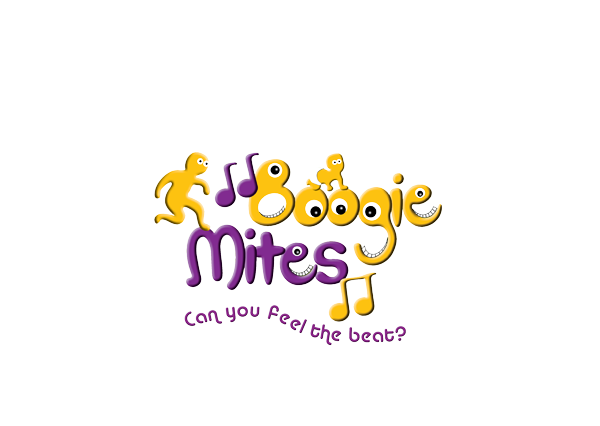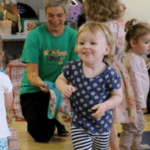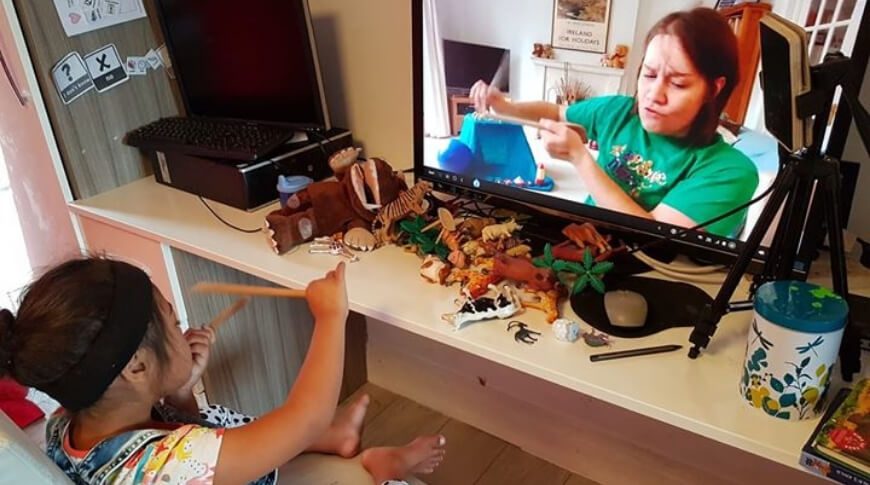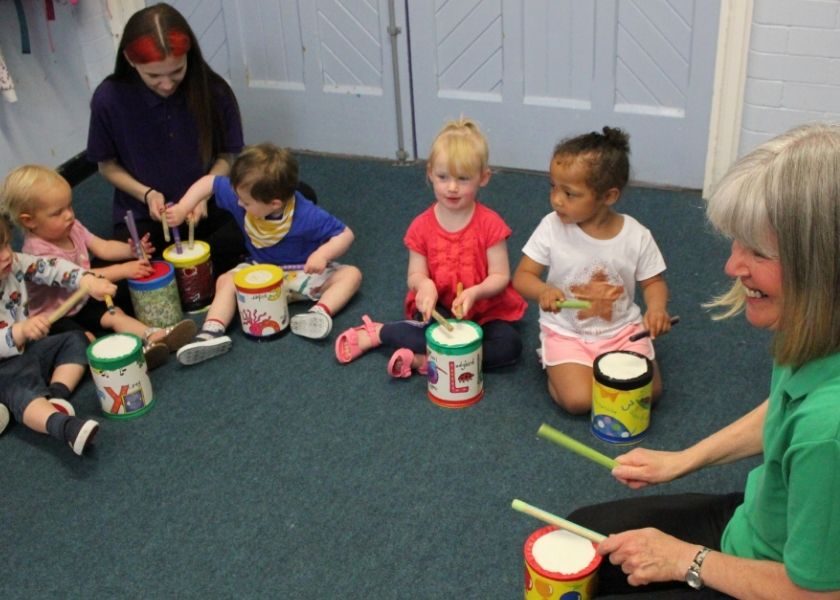Sue Asquith, Early Years Advisor and Childhood Consultant, continues our wellbeing focus and discusses self-regulation in early years – specifically in relation to the 2020 COVID19 pandemic.
I was thrilled that the lovely people at Boogie Mites asked me to write a guest blog to support their focus on well-being this month!
In September 2021, the Early Years Foundation Stage reforms will be rolled out nationally in England. Self-regulation will be a new aspect under the prime area of personal social and emotional development.
You may already be aware that self-regulation plays an important part in our well-being. My book, Self-Regulation Skills in Young Children was released back in April, so if you’d like to learn more, that’s a perfect place to start!
What is self-regulation?
Self-regulation is complex, but to put it simply, you could describe it as: the ability to manage your own energy, emotions, behaviours and attention in a socially acceptable way.
In time, self-regulation skills help us to gain impulse control – to plan, think, problem-solve and interact with others whilst controlling our own behaviour.
And developing an ability to understand, manage and cope with disruptive environments, feelings, emotions and impulses, provides a solid foundation for resilience…
…resilience which helps us face change and cope with challenges.
We are not born with self-regulation skills, but we are born able to learn! Babies and young children need caring relationships to help them build these skills. Young children get frustrated, they can find life complicated and sometimes unfair as they try to assert their independence. In time, their personal, social and emotional skills mature, and their understanding, communication and language skills will grow. With the support of positive relationships, they will learn more about life and routines and how to voice their thoughts and feelings.
The Year 2020
The coronavirus pandemic and lockdown has caused disruption across the world, leaving adults and children alike, in uncertain, uncharted waters.
It has certainly been a year unlike any other on record! Arguably, the month of September will be one like no other too, as schools re-open to all children.
September is a time for transitions, with children starting childcare or school for the first time or perhaps transitioning to a new year or onto secondary education. This year, they do so in a time of uncertainty as schools and childcare settings plan the best ways to support and induct their new children and families. As always, parents will also have mixed feelings about their children starting or restarting school and childcare; there may be additional worries about what the academic year will bring.
Self-regulation and emotional literacy (the ability to understand and express feelings) are a fundamental part of child development. Perhaps now, more than ever, we need to reflect on our knowledge and understanding of this aspect of early development. We do not know what experiences individual children and families have had during lockdown. Furloughed parents may have enjoyed the extra time and activities they have been able to offer their children. This, no doubt, will have had a positive effect on relationships and children’s learning and development. However, sadly, we also know about the negative impact that adverse childhood experiences (ACEs) can have on children. If children have had negative experiences during lockdown, we do not know how, or when they will manifest themselves.
Positive relationships
Important adults (parents, carers grandparents, early years practitioners, teachers, etc) play crucial roles in supporting children. They help children to build the skills and confidence to communicate feelings and manage their emotions. Strong attachment relationships also provide an emotionally safe place for children to learn and thrive.
Young children are skilful observers! They use social referencing (the actions and reactions of those around them) to inform how they should behave (and pick up the emotional states of their adults too!) New research indicates that the Coronavirus lockdown has already been detrimental for parents, babies and young children. We do not know how, or what, effect any increased stress and worry that many now have – immediately, or long term.
We all need to use coping strategies to help us adjust, respond and cope with change, adversity and stress. Coping strategies help regulate our bodies and minds when we are feeling stressed and unbalanced. But we are all unique. What we find difficult and stressful differs from person to person, therefore, coping strategies may also differ.
Routines can help adults and children feel in control and predict what comes next, but the last few months have thrown many of these comforting routines out of the window. You may be building new routines for the new norm, finding ways to coexist with COVID-19. Perhaps you are finding that your new routines include a better work-life balance? Exercise? More fresh air? Time for baking, cooking, reading and/or listening to music?
On the other hand, you might be finding balancing childcare and any new norms a real challenge. You may have uncertainties about life, health, incomes and relationships.
Helping children to self-regulate
In addition to positive relationships, there are various ways that we can help children to regulate their bodies. Sensory play and musical movement can be useful to help children to learn about their bodies and self-regulation. Some children are sensory avoiders, some sensory seekers and others will be somewhere in between. We need to support each child according to their individual needs.
Music therapy studies show that when we listen to our favourite music, ‘feel-good’ chemicals such as dopamine and serotonin are released. These positively affect our mood and help to neutralise the impact of cortisol (the stress hormone). The same ‘feel-good’ sensation can be felt after exercising. Some children (and adults!) will need to move more in order to regulate their bodies.
What can children learn through music and movement?
Regular opportunities to listen to music, sing and move, help children to have fun with their peers.
A mother and daughter enjoy Clap Clap Clap on the Online Music Club. See more on the club below.
It may help them to regulate their bodies too. Music and movement activities provide opportunities to gain physical skills such as balance, hand eye co-ordination, bi-literal movements and crossing their midline. It also offers opportunities to build essential pivot actions (shoulders, elbows and wrists) and hand grasp strength. All these skills are precursors to literacy.
Boogie Mites Music and Movement
The Boogie Mites range helps practitioners and parents provide some of these learning opportunities. Many early years settings in England are using their EYPP funding perhaps a link to case study about added value to purchase Boogie Mites resources to:
- Support mood and sense of well-being of practitioners, parents and children
- Support children’s physical development building essential brain connections for future learning
- Engage parents to help them provide opportunities to continue their children’s learning at home.
As lockdown restrictions ease, musical stay and play sessions may provide the perfect vehicle for parent education workshops.
As a follower of Sue Asquith you are entitled to a 10% discount on any Boogie Mites products or services. Use this discount code at the checkout on their website shop:
SAALL10%
For enquiries, contact Sue Newman, Boogie Mites director: [email protected] or call her on 023 92 817274






